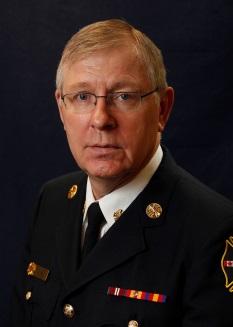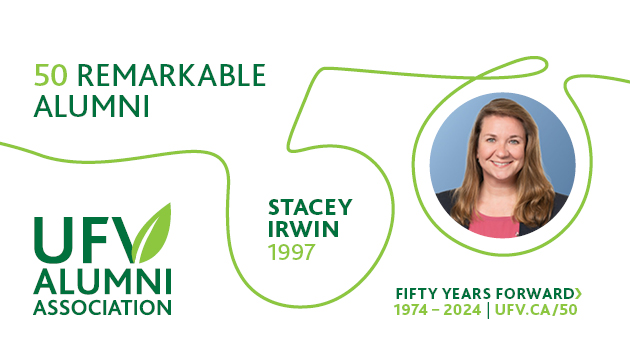UFV study indicates double risk of cancer fatality for firefighters

The University of the Fraser Valley (UFV) is releasing a new study recommending the creation of a national firefighter wellness surveillance system to help address soaring cancer rates and other key firefighter health risks.
In comparison to 2013 Statistics Canada data on all causes of fatality in the general population, cause of death in firefighters is 2 to 3 times more likely to be due to cancer when compared to the general population—even though they tend to lead healthier lifestyles as a requirement of their work
Co-author and Surrey Fire Chief, Len Garis, is an Adjunct Professor for UFV’s School of Criminology and Criminal Justice and an Associate to its Centre for Social Research. He notes the importance of a firefighter health surveillance model to monitor health trends and patterns, so that timely and responsive interventions can be created. Under his guidance, Surrey Fire Service has increased its focus on firefighter wellness in recent years, and is developing its own health monitoring program.
“As with all prevention activities, it will be many years before we realize the fruits of our work,” Garis said. “However, the work we do now will mean that after a long career of serving the public, more firefighters will live longer and healthier lives.”

Conducted with UFV and the British Columbia Injury Research and Prevention Unit (BCIRPU), Determinants of Injury and Death in Canadian Firefighters: A Case for a National Firefighter Wellness Surveillance System reviewed 10 years of firefighter health and injury data.
The study found that cancer caused more than 86 per cent of firefighter fatalities – overtaking cardiovascular disease as the top killer of Canadian firefighters – while traumatic injuries and mental health issues also take a significant toll.
Key findings:
- Cancer represented more than 86 per cent of all fatality claims, with an annual rate of 50 fatalities per 100,000 firefighters.
- Traumatic injuries accounted for 90 per cent of all time-loss claims, affecting approximately one in 50 firefighters each year.
- Mental health was the third leading cause of time-loss claims, affecting an average of one in 5,000 firefighters per year.
- Cardiovascular disease accounted for five per cent of fatality claims.
- Respiratory disease accounted for just under two per cent of all fatality claims.
Firefighters are regularly exposed to concentrated carcinogens in the air, soot and tar at a fire ground, and the cumulative effect is demonstrated by the fact that the highest number of time-loss claims for cancer were at ages 55 to 59, and most cancer deaths occurred over age 65.
When responding to emergencies, firefighters may be exposed to extreme temperatures, strenuous physical labour, falling objects, diseases, toxic substances, and violence or other traumatic events. Through an extensive review of research from 2000 to 2017 and claims data for 2006 to 2015 (provided by the Association of Workers’ Compensation Boards of Canada and WorkSafeBC), the study identified the top five health concerns facing Canadian firefighters as: cancer, traumatic injury, cardiovascular disease, respiratory disease and mental health problems.
“Taking a fresh look at the data helps to ensure that the measures taken to improve health and prevent injuries among firefighters are relevant and effective,” noted Rachel Ramsden, the lead author and member of BCIRPU. “Through this study we see that firefighter health risks evolve over time. This points to the need for a method of continually collecting and analyzing firefighter health data, so that the interventions can remain in sync.”
The study has implications for the 100,000-plus volunteer and career firefighters across Canada, as well as those abroad, including the 1.2 million in the United States.
“We see this study as part of the ongoing effort to make firefighting a safer profession,” noted Mike Hurley, Vice-President of the International Association of Fire Fighters’ 6th District, representing B.C., Alberta, Saskatchewan, the Northwest Territories and the Yukon. “We welcome any effort that helps us to better understand the risks to firefighters, and to identify what can be done to reduce them.”
According to Ramsden, “This important, potentially life-saving work would not have been possible without the support of the Motorola Solutions Foundation, and we extend our sincere thanks for their support of this study.”
Funded by the 2017 Motorola Solutions Foundation grant program, the study represents more than a year of work by a team of Canadian health professionals, researchers, academics and fire service leaders: Rachel Ramsden, Jennifer Smith and Kate Turcotte from the BCIRPU; Len Garis, Fire Chief for the City of Surrey and Adjunct Professor at UFV; Dr. Kenneth Kunz, a medical oncologist; Dr. Paul Maxim, a researcher and Wilfrid Laurier University and Professor; Larry Thomas, Deputy Fire Chief for the City of Surrey; and Dr. Ian Pike, Director of the BCIRPU and a University of British Columbia Professor.
The Motorola Solutions Foundation grant program supports and advances public safety programs and science, technology, engineering and math (STEM) education initiatives.
“Motorola Solutions Foundation is proud to support this project. As a technology company that supports the safety of communities worldwide, we know how important it is to educate tomorrow’s technology professionals as well as enlighten civilians and first responders on today’s safety needs,” said Matt Blakely, Executive Director of the Motorola Solutions Foundation.
The study can be downloaded for free at https://cjr.ufv.ca/
For more information about the Motorola Solutions Foundation grants program, visit http://motorolasolutions.com/foundation.
-30-
More information please contact Len Garis at Len.garis@ufv.ca or call 778-846-0851




